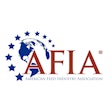In August, during the 100th anniversary meeting of the Association of American Feed Control Officials (AAFCO), held in Washington, DC, USA, a topic of imminent importance to the petfood industry came up for discussion: implementation of the US Food and Drug Administration (FDA) Reportable Food Registry.
The formation of a means for food and feed companies to report incidents of adulteration in a timely manner is a mandate of the FDA Amendments Act (FDAAA) of 2007. This provision was put in place in response to the perceived delays in reporting incidents of contamination, which may have exacerbated their adverse impacts on human and animal health.
Perhaps the most notable event that prompted this new law was the contamination of petfoods with melamine and related compounds earlier in 2007. The mandatory reporting system is intended to help FDA quickly track patterns of adulteration and support efforts to target the agency's limited inspection resources more effectively.
Required to report
The Reportable Food Registry requires the responsible party to report as soon as practical (but no later than 24 hours) any discovery where there is reasonable probability that the use of, or exposure to, a food or feed will cause serious adverse health consequences or death to humans or animals. The responsible party is the person who submits the facility registration under the Bioterrorism Act of 2002. These reports must be submitted through FDA's electronic portal, due to be accessible on www.fda.gov as of September 8. Failure to comply with this reporting requirement will be a felony.
While the portal for submitting reports is not available for viewing at the time of this writing, an FDA official at the AAFCO meeting described the submission process as "easier than doing your income tax."
Instructions will be available on the Web page.
A report must include:
- The responsible party's Bioterrorism Act registration number;
- The date the food was determined to be reportable;
- Description of the food (quantity affected, product codes, names of manufacturers and distributors, etc.); and
- Extent and nature of the adulteration.
Other requirements
Responsible parties must also report the results of any investigation into the cause of the adulteration and the disposition of the adulterated item. This latter information may be unknown or incomplete at the time of the first submission but, when completed, must be included in an amended report.
FDA may impose other requirements after evaluating the report. This could include additional information as needed for FDA to conduct its investigation and notify the immediate previous source and/or immediate subsequent recipient(s) of the adulterated item, who in turn may also have to file reports. Finally, there are requirements to keep records on all reports for two years.
Exemptions apply
- The responsible party will not be required to submit a report if:
- The adulteration originated with the responsible party; AND
- The food was in full control of the responsible party at time of detection of the adulteration; AND
- The cause of adulteration was determined and corrected, or the food was destroyed.
Assumedly, a report also would not be required if the adulteration did not result in a reasonable probability of serious harm. At this time, though, guidance on how this determination is to be made by the responsible party is lacking. The impression given by FDA is, if in doubt, the responsible party should err on the safe side and report the incident. FDA would then determine if the food was a reportable food.
Publicly available
Obviously, a reportable food indicating further action-for example, a recall-will be public knowledge at some point. What is still unclear from FDA at this juncture is whether a report that is later determined by the agency not to be a reportable food will still be made available to the public. If it is, this could have a negative impact on the inclination for responsible parties to file reports when the probability of harm is borderline.
It is assumed that the severity of the potential penalties for noncompliance will dissuade this from happening. Some have also expressed concern that this reporting requirement may actually discourage routine safety testing.


















